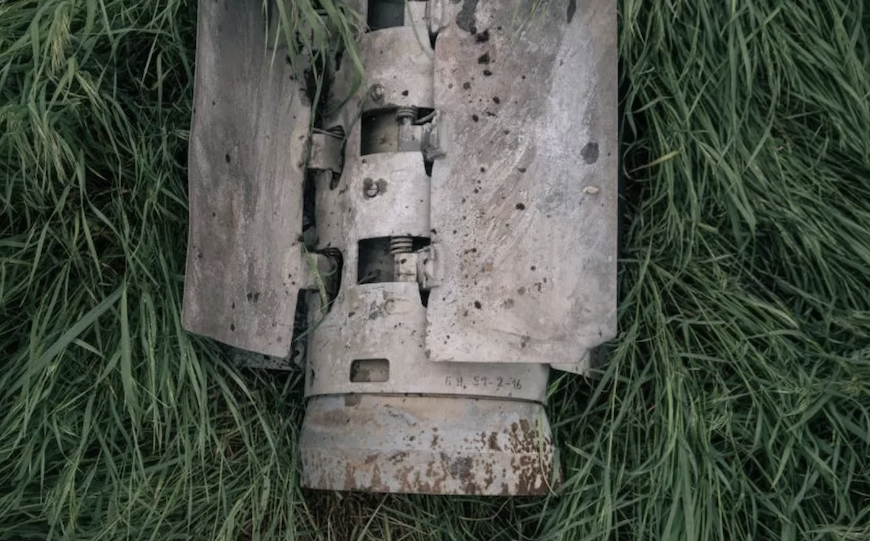US allies, including Britain and Canada, have expressed concern over President Joe Biden's decision to transfer cluster bombs to Kiev.
Earlier, on July 7 (Washington time), President Joe Biden confirmed that the US would provide thousands of cluster bombs and cluster munitions in a new military aid package worth about $800 million to Ukraine. Speaking to CNN, President Joe Biden said he had "thought and considered for quite a while before making the decision" because "the Ukrainians were running out of ammunition."
 |
| Parts of a cluster bomb found in a field in Ukraine in April 2023. Photo: Getty Images |
This decision was quickly opposed by international humanitarian and human rights organizations on the grounds that cluster bombs pose a serious threat to civilian lives, even long after the conflict has ended. The UK, Canada and Spain also expressed concern about the use of this dangerous weapon.
Spanish Defense Minister Margarita Robles said her country has a “firm commitment” not to send certain types of weapons and bombs to Ukraine. Meanwhile, the Canadian government is particularly concerned about the potential impact of unexploded bomblets that are released from the mother bomb and fall to the ground, especially on children.
In response to the actions of the Joe Biden administration, on July 8, the Russian Foreign Ministry issued a statement saying that the US decision to supply cluster munitions to Ukraine was an act aimed at prolonging the conflict in Ukraine. TASS news agency quoted Maria Zakharova, spokeswoman for the Russian Foreign Ministry, as emphasizing that the US administration's decision continued to demonstrate its anti-Russian stance in the conflict in Ukraine. She also said that Russia considered the Ukrainian government's commitments to use cluster munitions "responsibly" unreliable.
 |
| How cluster bombs work. Source: unian.net |
Cluster bombs are bombs that explode in the air, releasing multiple submunitions to destroy multiple targets at once over a large area. Cluster bombs and munitions can be designed to be launched from artillery, rocket launchers, or dropped from aircraft. According to the International Committee of the Red Cross, some cluster bombs and munitions have a high rate of unexploded after being fired, up to 40% in some cases. They can remain on the ground for decades, ready to explode at any time. This makes the risk of civilian casualties from cluster bombs and munitions very high. However, US officials say the unexploded rate for cluster bombs and munitions would be less than 3% if they were sent to Ukraine.
Meanwhile, Ukraine's defense minister pledged that cluster bombs would only be used to penetrate enemy defenses and not in urban areas.
LOYAL (synthesis)
Source




![[Photo] Closing of the 11th Conference of the 13th Central Committee of the Communist Party of Vietnam](https://vstatic.vietnam.vn/vietnam/resource/IMAGE/2025/4/12/114b57fe6e9b4814a5ddfacf6dfe5b7f)

![[Photo] Overcoming all difficulties, speeding up construction progress of Hoa Binh Hydropower Plant Expansion Project](https://vstatic.vietnam.vn/vietnam/resource/IMAGE/2025/4/12/bff04b551e98484c84d74c8faa3526e0)























































































Comment (0)